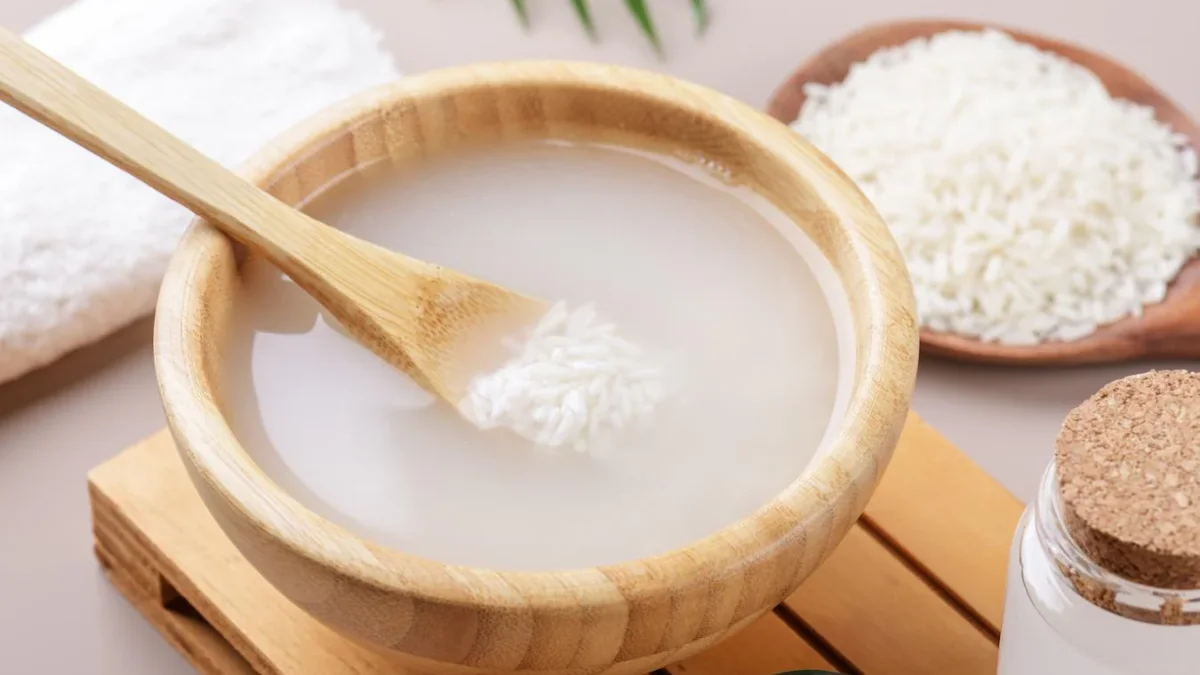Does using rice water to wash your face benefit your skin?
Rice water- the leftover liquid after boiling rice- has been believed for a long time to enhance hair strength and beauty
The Truth About Rice Water
Rice water- the leftover liquid after boiling rice- has been believed for a long time to enhance hair strength and beauty. The first recorded usage of it dates back more than 1,000 years in Japan.
Nowadays, rice water is becoming well-liked as a skincare remedy as well. It is claimed to calm and firm your skin, and may also enhance various skin issues. Even more appealing, rice water is a simple and affordable recipe you can prepare at home.
Rice water holds compounds recognized for their ability to safeguard and heal your skin. Although there are genuine advantages, numerous assertions about it remain unverified by science.
Advantages of Rice Water for the Skin
Rice water for brightening the skin
Some suggest using rice water to brighten the skin or diminish dark spots. In reality, numerous commercial items — such as soaps, toners, and creams — include rice water.
Certain individuals swear by the skin brightening abilities of rice water. Although some of the chemicals contained in it are recognized for their ability to lighten pigmentation, there is no proof regarding its effectiveness.
Water from Rice for the Face
A 2013 study Trusted Source indicated that rice wine (fermented rice water) may aid in repairing sun-damaged skin. Rice wine boosts collagen levels in the skin, helping to maintain skin elasticity and reduce the likelihood of wrinkles. Rice wine seems to possess inherent sunscreen qualities.
Additional research indicates robust evidence supporting the anti-aging advantages of fermented rice water due to its antioxidant characteristics.
Dehydrated Skin
Rice water is recognized for alleviating skin irritation triggered by sodium lauryl sulfate (SLS), a component present in numerous personal care items. Anecdotal evidence indicates that applying rice water twice daily benefits skin that has been dried and harmed by SLS.
Damaged Hair
Inositol, a substance found in rice water, can assist hair that has been bleached. It assists in repairing damaged hair from the inside, including split ends.
Digestive Disturbances
Certain individuals suggest consuming rice water when experiencing food poisoning or a stomach virus. Although there is strong evidence that rice aids in treating diarrhea, it frequently has traces of arsenic. Consuming excessive amounts of rice water that contains arsenic may result in cancers, vascular issues, high blood pressure, heart problems, and Type 2 diabetes.
Dermatitis, Pimples, Sores, and Irritation
Many individuals assert that using rice water on the skin can calm it, eliminate blemishes from conditions such as eczema, and promote healing. Considering our understanding of the characteristics of rice water, it’s plausible to believe that some of these assertions are accurate. Nonetheless, concrete evidence is still absent.
Eye Problems
It is believed by some that consuming rice water or specific varieties of rice can aid in addressing eye issues such as macular degeneration, a condition that typically impacts older individuals and may lead to blindness. Up to this point, that assertion has not been established, though.
Protection Against Sun Damage
Compounds found in rice have demonstrated the ability to shield the skin from the sun’s rays. A 2016 study Trusted Source indicated that it was an effective sunscreen when used alongside other plant extracts.
How to Apply Rice Water to Your Face?
There are various methods to make rice water. All of them necessitate a complete rinsing of the rice prior to using it. Many people assert that the kind of rice you choose is irrelevant.
Cooking Rice Water
Wash the rice well and let it drain. Utilize approximately four times the amount of water compared to rice. Mix the rice and water thoroughly and heat until boiling. Take it off the heat. Use a spoon to mash the rice and extract the beneficial compounds, then filter the rice using a sieve, and store the water in a sealed container in the refrigerator for up to seven days. Use plain water for dilution before applying.
Rice Water Soaking
Rice water can also be prepared by soaking rice in water. Use the same method as described earlier, but rather than cooking the rice and water, allow it to soak for a minimum of 30 minutes before pressing the rice and filtering it through the sieve. Ultimately, chill the rice water in the refrigerator.
Fermented Rice Water
To prepare fermented rice water, follow the same procedure for soaking the rice. After pressing and straining the rice, instead of cooling the water in the fridge, store it in a jar at room temperature for one to two days. When the container begins to emit a sour odor, place it in the refrigerator. Mix with plain water prior to use.
Applications of Rice Water
Rice water can be used directly on skin or hair. You can try adding scents or various natural components to personalize it. If you boil or ferment it, you should initially dilute it with plain water.
Hair Conditioner
Consider incorporating a few drops of essential oil to enhance the scent of your homemade rice water. Apply the rice water to your hair starting from the roots down to the tips and let it sit for a minimum of 10 minutes. Wash out.
Shampoo
To create shampoo, mix liquid castile soap with fermented rice water, along with your preferred aloe, chamomile tea, or a few drops of essential oil.
Face Wash and Toner
Apply a little rice water to a cotton ball and gently dab over your face and neck as a toner. To use it for cleaning, rub it into your skin. Wash if preferred. A face mask can also be created using a thick piece of tissue paper.
Bath Immersion
Shred a small amount of natural bar soap and mix it in with some vitamin E into the rice water for a relaxing bath soak.
Exfoliating Body Scrub
Incorporate sea salt, a touch of essential oil, and citrus to create a natural scrub. Apply and wash off.
Sunscreen
Purchasing sunscreens with rice water extracts might enhance defense against sun exposure. Sunscreens featuring rice bran extracts, in addition to other botanical extracts, enhanced UVA/UVB protection.
Rice water is currently quite trendy. Although not every assertion regarding its benefits for skin and hair is substantiated, there is proof that it aids in some skin issues, such as sun harm and natural aging. It also fixes harmed hair.
Although consuming large amounts of rice water isn’t advised because of potential arsenic levels, using it on your skin and hair could offer beneficial effects. Consult a dermatologist prior to starting any skin care routine.
We’re now on WhatsApp. Click to join.
Like this post?
Register at One World News to never miss out on videos, celeb interviews, and best reads.








